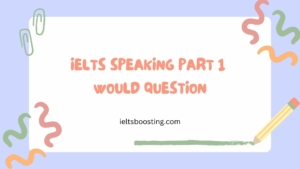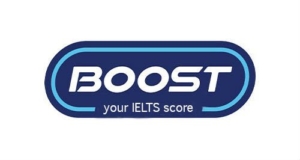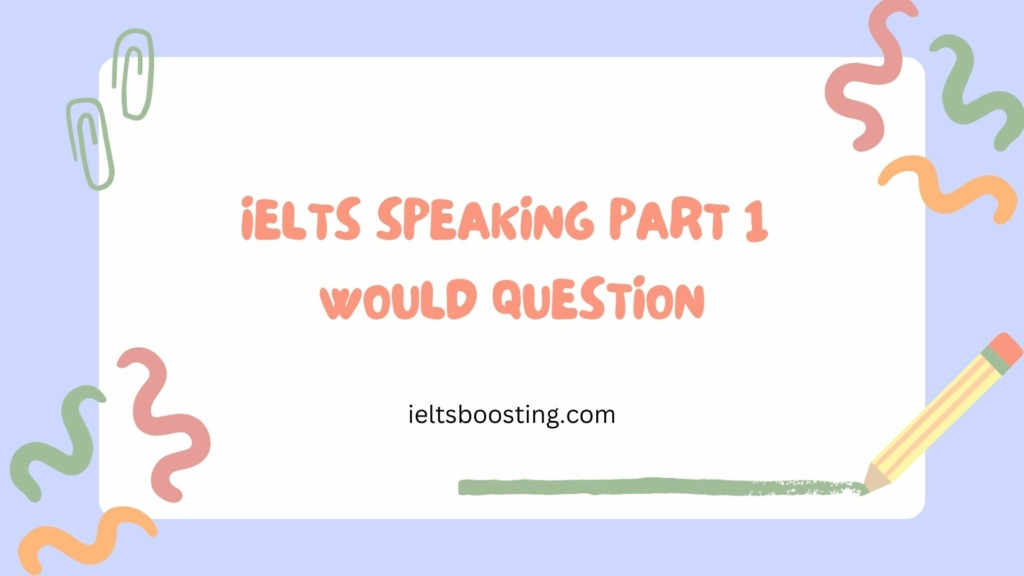Look at the following IELTS speaking part 1 would question
· Would you like to move to another city in the future?
· Would you like to change your job?
· Would you like to live near the sea?
· Would you like to learn another foreign language?
· Would you like to be in a film?
· What would you like to change about your city?
· What would you like to change about your school (school in the past)?
· Would you like to change your name?
When the examiner asks these questions, he or she is listening carefully to one aspect of your answer. What do you think is the most important aspect of your answer for these questions?

IELTS speaking part 1 would question
Look al the following example
Would you like to change your name?
“No, I don’t want to change my name. In fact I think I’m really fond of my name because it has quite a deep and significant meaning, and as well as this, my mother chose it for me so she doesn’t want me to change it. Actually I am sure I will never change my name!”
Is this a good answer?
What is good about this answer?
What is missing from this answer?
The grammar aspect of these questions is very important. As a basic rule, if the question uses “would”, then you need to include at least one example of “would” (or might /could) in your answer.
For most of these questions, you should use the second conditional tense in your answer. In fact the examiner is expecting you to produce an example of this verb tense.
The form of the second conditional is quite simple:
If + past simple, would / could / might + infinitive verb.
Example
If I lived near the sea, I would be able to eat fresh seafood.
If I had the time, I would go for travelling.
The second conditional is used to talk about a present or future time, to describe an event that is unlikely (hypothetical).
e.g.:
If I worked in a factory, I would be tired every day! (But I don‘t work in a factory and it’s unlikely that I will work in a factory in the future.)
IELTS speaking part 1 yes no question-how to produce band 7 answer
IELTS speaking part 1 Wh-How Often question-how to produce band 7 answer
IELTS speaking part 1 disliking question – how to produce band 7 answer
Activity 1 for IELTS speaking part 1 would question
Think of one basic second conditional structure for each question: use positive sentences. Try to use different words for each example.
e.g.: “Would you like to move to another city in the future?”
“I would like to change cities if I had the chance.” Or “If I had the chance I would like to move to another city.”
· Would you like to change your job?
· Would you like to live near the sea?
· Would you like to learn another foreign language?
· Would you like to be in a film?
· What would you like to change about your city?
· What would you like to change about your school?
· Would you like to change your name?
· What job would you like to do in the future?
· Would you like to live in a foreign country?
· Would you like to be a professional photographer?
When you add a reason or detail, you need to use more second conditional structures:
e.g.: “Would you like to move to another city in the future?”
I would like to change cities if I had the chance, because if I lived in a different city I would make lots of new friends and I could try lots of new kinds of food. Also I might be able to find a well-paid job.
Activity 2 for IELTS speaking part 1 would question
Go back to the previous activity questions and develop your answer with details or reasons, using more examples of the second conditional. (Try to use some examples with “might” and “could”.) For some of these questions it is possible to use a negative form.
e.g.: “Would you like to move to another city?”
“No I wouldn’t like to move to another city, because if I lived in another city I wouldn‘t have any friends.”
Try to make some negative sentences for the questions (remember your details and reasons can be either positive or negative structures, but they should be second conditional).
Sometimes candidates begin these questions with: “I never thought about it.” This is not a good example of native-speaker language. The following structures can be used to begin your answer.
· Well, quite honestly I don‘t think ever thought about that, but I guess…
· Actually, this isn’t something that I’ve ever considered, but in short…
· I’m not really sure how to put this, but I suppose generally speaking…
Look at the following complete structure:
Would you like to move to another city?
Actually, this isn’t something that I’ve ever considered, but in short I suppose I would possibly consider moving cities, especially I had the chance to move to a coastal city like Xiamen or Sanya. If I lived in a seaside city I would be able to hang out on the beach every day and I would also have the opportunity to get into water sports like scuba-diving and possibly surfing.
Notice how the first structure used “verb+ing”: “I suppose I would possibly consider moving cities...”
This structure is much more complex than the basic: “I suppose I would like to move to another city…”
Try to use one of the following structures for your first structure.
· I imagine I would possibly think about (verb + ing)…
· I guess I would maybe contemplate (verb + ing)…
· I would perhaps reflect on (verb + ing)…
Look at the activity questions again and try to use one “verb + ing” structure for each. Try to use a different verb from the question verb.
Would you like to learn another foreign language?
“Well, quite honestly I don’t think ever thought about that. But I guess I would maybe contemplate up a new language.”


